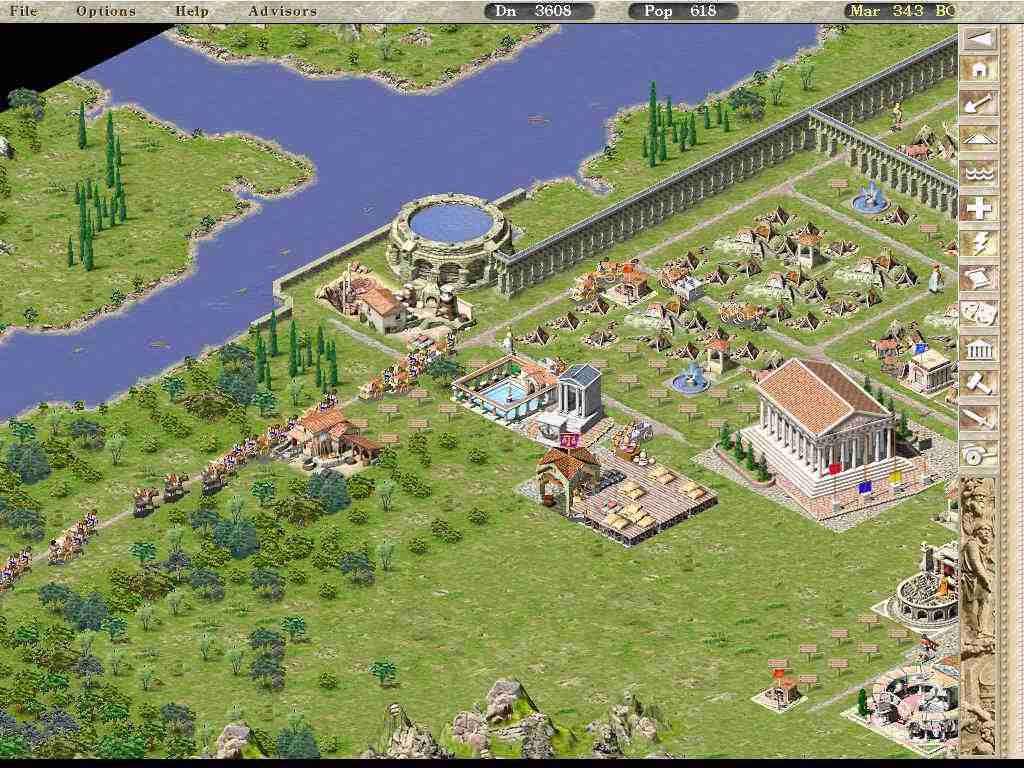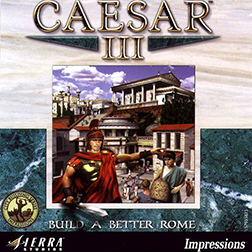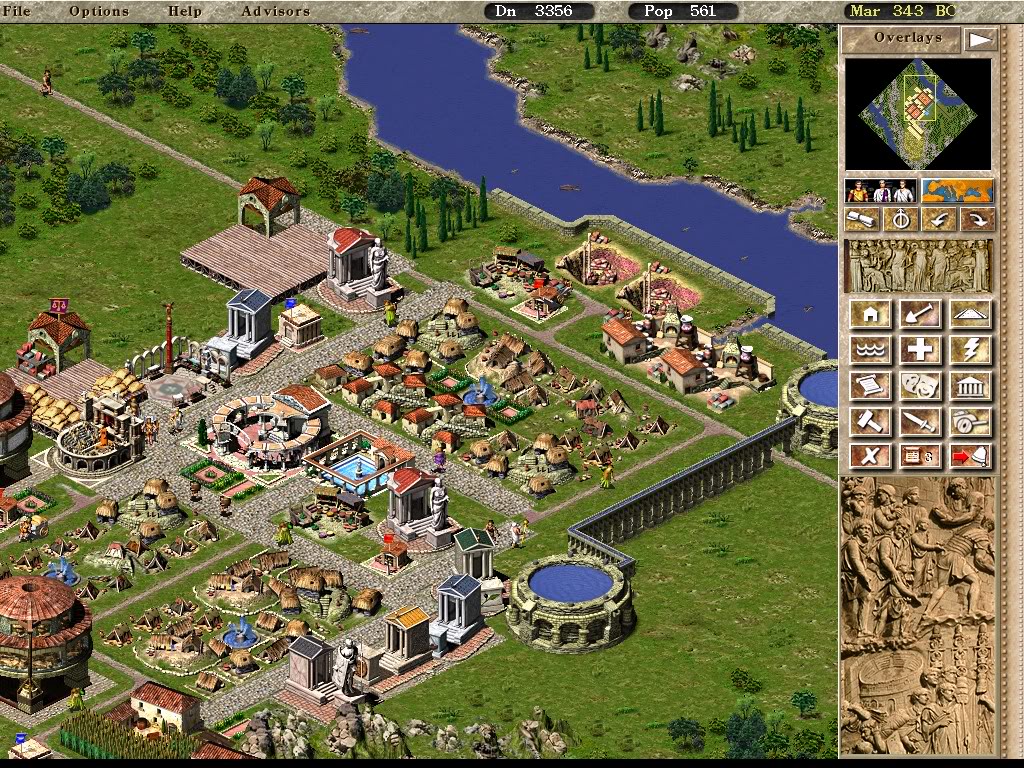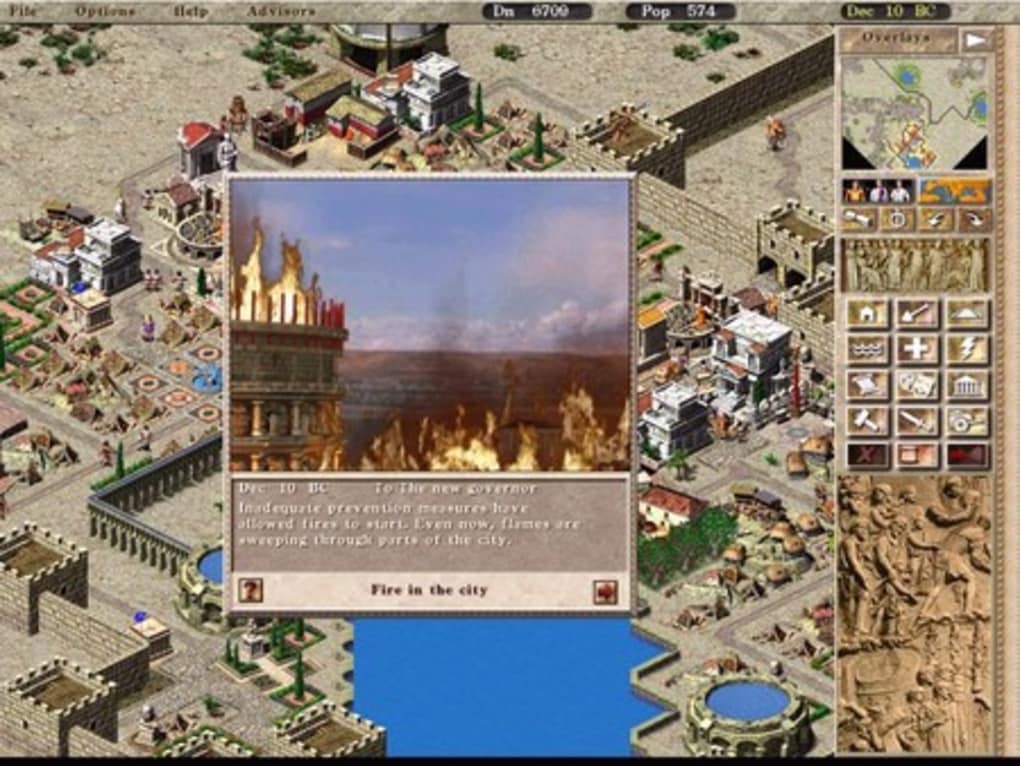

You'd think that this would be pretty tedious, but in fact it's the greatest part of the game because of the challenge. After the essentials your people need entertainment temples for the gods, bathhouses, education, jobs, and clinical help. You'll need to make homes for different classes and make sure there's water available throughout the city, offices to prevent building collapse, fires, theft, and to collect taxes. So you pause, build up your city to what you think would be beneficial and could work.

You start off each one in pretty much the same way: a random road, a stock-pile of denarii (currency), an objective to complete, and a board of advisers who never let you forget the things you don't care about.

Let's start off simple: in the scenarios given you're being tested as a governor, as Rome is looking for someone to take on larger projects (the later scenarios). Perhaps the most accurate comparison is Roller Coaster Tycoon only instead of building a thriving theme park you build a successful Roman city and have pixels criticize you no matter what you do. Longtime fans of the series may relish the return of charismatic features such as the story-lined single-player campaign, the open-ended sandbox mode, and the chatty individual citizens who are more than willing to provide opinion regarding their governor's competence.Ĭaesar IV is a mixture of fun and ultimate length. There are more goods to trade and more structures to build. The Impressions studios have since disbanded, but some of their artists and programmers went on to found Tilted Mill, the creator of Caesar IV.Ĭaesar IV boasts a number of improvements over its immediate predecessor, which was originally released eight years earlier, including state-of-the-art graphics, more sophisticated citizen artificial intelligence, and greater control over combat. Will Wright's SimCity gets credit for establishing the "city-building" genre of computer games, but Impressions Software's original Caesar (along with the many Impressions-brand sequels and spin-offs that followed it) is fondly remembered for placing Wright's municipal-management premise in a fanciful, historical context. By developing infrastructure, managing the economy, and protecting citizens, players can build a Rome of their own in Caesar IV one mighty enough to rival the great metropolis of history and myth.

This village would grow to become the most important capital of the ancient world - but only under the guidance of a wise and just governor. Many ages ago, a small village was founded alongside the Tiber river, in an area where seven hills rose from the marshland.


 0 kommentar(er)
0 kommentar(er)
